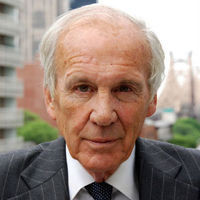Margo Jefferson, a Pulitzer Prize winner, has written for The New York Times, Newsweek, and Harper's. Her latest book is Negroland: A Memoir.
“One of the problems with—burdens of—‘race conversations’ in this country is certain ideological, political, sociological narratives keep getting imposed. This is where the conversation should go, these are the roles we need. In a way, this is the comfort level of my discomfort. ... Maybe we’re all somewhat addicted—I think we are—to certain racial conversations, with their limitations and their conventions.”
Thanks to MailChimp and Casper for sponsoring this week's episode.



















